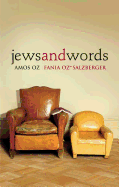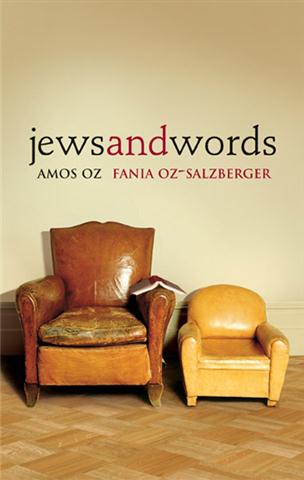 In Jews and Words, the distinguished novelist and literary critic Amos Oz and his daughter Fania Oz-Salzberger, an intellectual historian--both of whom call themselves "secular Jewish Israelis"--have produced an energetic brief to support their thesis that the foundation of Jewish continuity is "not a bloodline but a textline."
In Jews and Words, the distinguished novelist and literary critic Amos Oz and his daughter Fania Oz-Salzberger, an intellectual historian--both of whom call themselves "secular Jewish Israelis"--have produced an energetic brief to support their thesis that the foundation of Jewish continuity is "not a bloodline but a textline."
Oz and his daughter's argument is rooted in their belief that "in order to remain a Jewish family, a Jewish family perforce relied on words. Not any words, but words that came from books." Even in families too poor to own the text themselves, they note, there was a reverence for the written word and a determination to "pass on to their progeny a written legacy, albeit in oral form." The most prominent example of this transmission method is the Passover seder, though that's only one of many such rituals.
In making their case, the authors display an impressive familiarity with a broad array of Jewish texts. But like many nonreligious Israelis, their knowledge isn't built on a foundation of faith; for them, the Bible is an engaging work simply because it is "full of geographical markers we recognize, natural imagery we adore, and vignettes of human nature we deeply admire."
The book devotes a chapter to a discussion of the place of women in Jewish texts. Positing a female author for the Song of Songs, "the Bible's most erotic tome," Jews and Words spends considerable time highlighting the critical role of women in the Bible, contrasting it with their absence in the Talmud, the body of rabbinic literature created in the several centuries after the destruction of the Second Temple in Jerusalem.
What's most striking, as Oz and Oz-Salzberger point out in the chapter entitled "Time and Timelessness," is that the interpretation of Jewish texts involves nothing less than a conversation that stretches across millennia. "And so," they argue, "the biblical heroes and the Talmudic scholars somehow insist on being Our Contemporaries." In what they call "the ever-living company of conversing scholars," one can "imagine Moses sitting at the back of Rabbi Akiva's classroom." It's this ongoing disputation, they suggest, that invests these ancient texts with contemporary vitality.
Jews and Words may challenge casual readers, at least those unfamiliar with the many sources it considers. At the same time, it's brimming with such unsentimental affection for these texts and the role they've played in the survival of the Jewish people that those with any interest in the subject are likely to find themselves captivated and inspired by the authors' undisguised enthusiasm for their subject. --Harvey Freedenberg
Shelf Talker: Amos Oz and his daughter make a passionate, sophisticated argument for the central role of texts in Jewish survival.
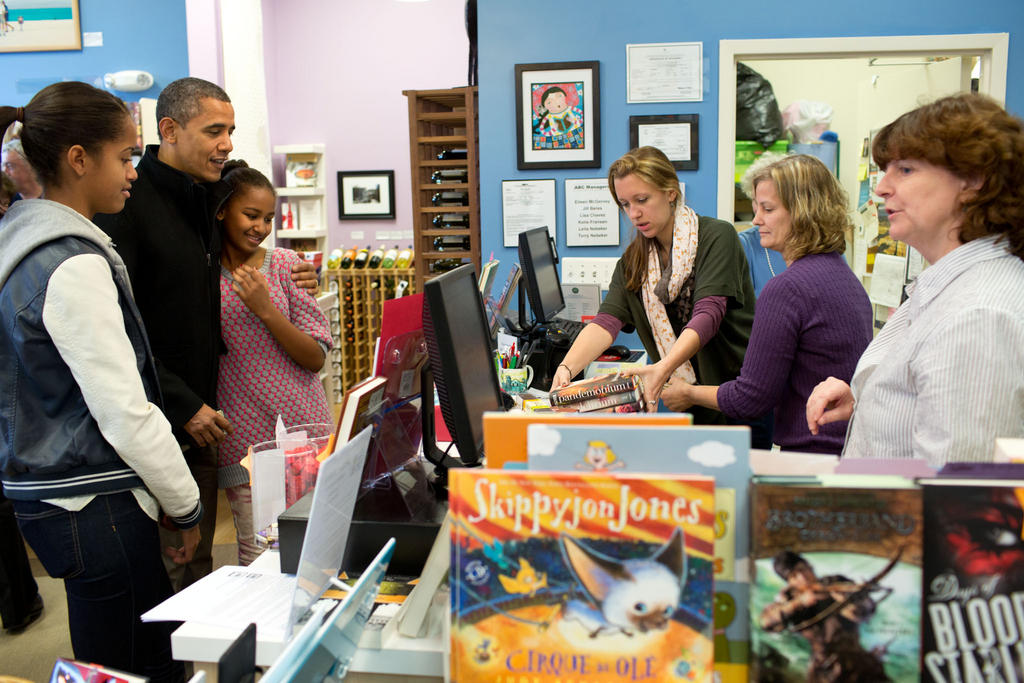






IPC.0218.S4.INDIEPRESSMONTHTITLES.gif)



IPC.0211.T4.INDIEPRESSMONTH.gif)
 "
"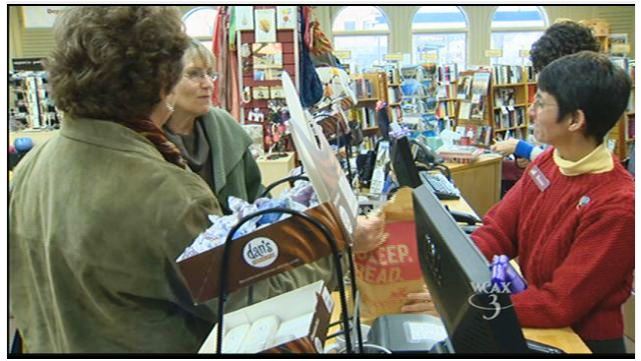 Renee Reiner, co-owner of Phoenix Books
Renee Reiner, co-owner of Phoenix Books

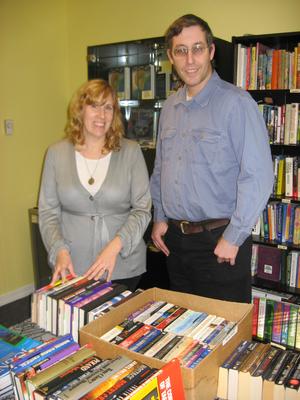 Last Tuesday,
Last Tuesday,  Five months after extending a planned closure and "
Five months after extending a planned closure and " Last Thursday, Barnes & Noble began selling its Nook HD and Nook HD+ tablets in the
Last Thursday, Barnes & Noble began selling its Nook HD and Nook HD+ tablets in the  U.K. chain bookseller W.H. Smith, which has more than 100 locations in Dubai, France, India, Ireland, Oman and Sweden, is
U.K. chain bookseller W.H. Smith, which has more than 100 locations in Dubai, France, India, Ireland, Oman and Sweden, is 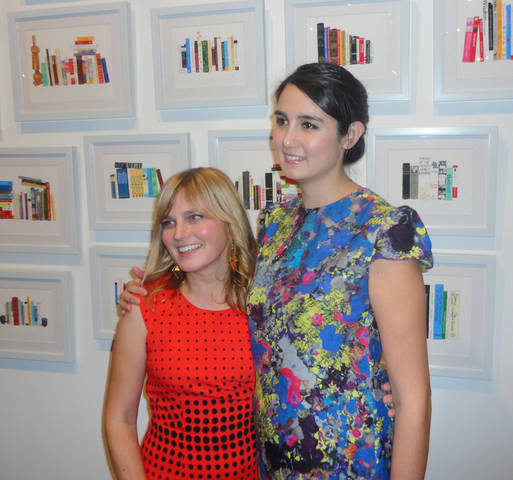 Painter Jane Mount (l.) and writer Thessaly La Force celebrated the publication of My Ideal Bookshelf (Little, Brown) with a reception at Brooklyn's powerHouse Arena November 16. The store is hosting an exhibition of prints of 60 of Mount's paintings, which depict mini-collections of books selected by authors and other celebrities, through December 7. The prints are available for sale (starting at $200), with the majority of the proceeds going to help powerHouse recover from Hurricane Sandy.
Painter Jane Mount (l.) and writer Thessaly La Force celebrated the publication of My Ideal Bookshelf (Little, Brown) with a reception at Brooklyn's powerHouse Arena November 16. The store is hosting an exhibition of prints of 60 of Mount's paintings, which depict mini-collections of books selected by authors and other celebrities, through December 7. The prints are available for sale (starting at $200), with the majority of the proceeds going to help powerHouse recover from Hurricane Sandy.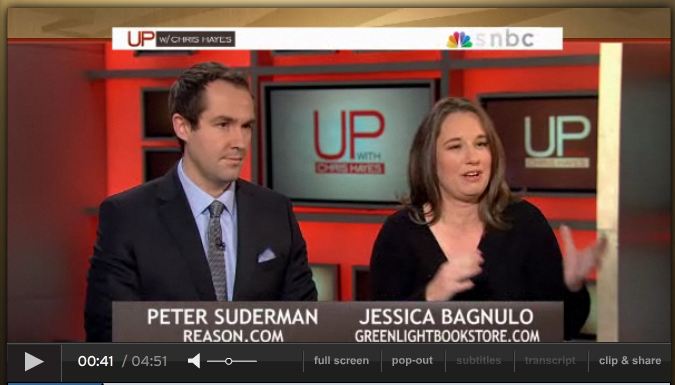
 In Jews and Words, the distinguished novelist and literary critic Amos Oz and his daughter Fania Oz-Salzberger, an intellectual historian--both of whom call themselves "secular Jewish Israelis"--have produced an energetic brief to support their thesis that the foundation of Jewish continuity is "not a bloodline but a textline."
In Jews and Words, the distinguished novelist and literary critic Amos Oz and his daughter Fania Oz-Salzberger, an intellectual historian--both of whom call themselves "secular Jewish Israelis"--have produced an energetic brief to support their thesis that the foundation of Jewish continuity is "not a bloodline but a textline."